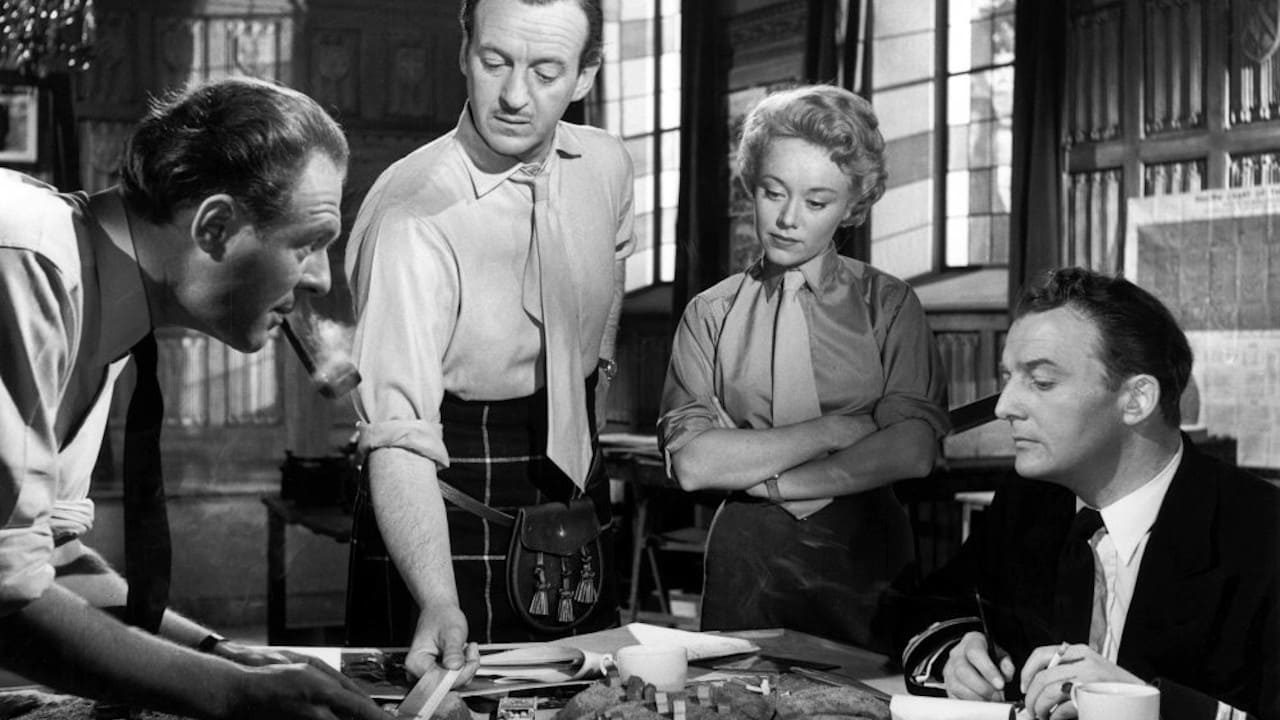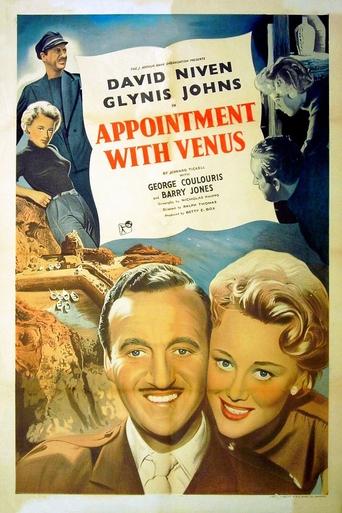



Let's be realistic.
Disturbing yet enthralling
In truth, there is barely enough story here to make a film.
View MoreI cannot think of one single thing that I would change about this film. The acting is incomparable, the directing deft, and the writing poignantly brilliant.
View MoreThe British garrison has been evacuated from the Channel Islands and soon after the Germans occupy the islands. The British send a very small expedition force to attempt to transport back to Britain a prize Guernsey cow named Venus. The Nazi commandant of the island recognizes the breeding value of this cow makes plans to have her shipped to Germany. The key members of the rescue team are Glynis Johns and David Niven - two actors who never disappoint. The commandant is a sympathetic character who treats the islanders with great respect. It's all rather bucolic and pleasant with just one nasty Nazi soldier who provides the tension to the story. It's a charming and engaging movie set in a fascinating locale and a reminder of a perhaps little remembered fact of this German occupation. The print I saw of this was great and I'll be watching this movie again.
View MoreThis is quite a nice film but it could have been a lot better. The plot is mucked about too often for no apparent reason and Glynis Johns just isn't right as the Nicola. David Niven is believable as Major Valentine but it's not his best performance by a long way and Noel Purcell must have been cast just for his beard. He's supposed to be from the island but he plays the part very Dublin Irish. Patric Doonan is absolutely spot on as Forbes though giving one of his best performances and Martin Boddey is a wonderfully brutal Vogel. Kenneth More is good as the pacifist Lionel but (Spoiler) at the end of the film he gets on the boat and sails to England with the others which is totally out of character and, for me, ruins the end of the movie. In the book he specifically says that he can't go to England because the Germans will want to take retribution and he stays behind to take the blame so the island will be spared and then Captain Weiss, who is quite a sympathetic character, shoots him to save him falling into the hands of the torturers from the Gestapo.
View MoreWith little way of defending it and few valuable resources to protect, the UK allows the German army to invade Channel Islands while the residents decide on a peaceful acceptance including non-violence resistance. However the Ministry of Agriculture is quick to point out that this means the Germans will have possession of one of Britain's finest cows, Venus, who also happens to pregnant with a calf. With the issue raised, the War Office dispatches Major Valentine Moreland to liberate the cow and return her to the safety and honest green grass of British-held territory.Despite the fairly ordinary sounding title, this film has a premise that makes it sound like it can only be a funny little comedy that has plenty of light British wit. However the film is nothing of the sort and, while being a bit of a flop, it is also a rather strange beast that can't seem to settle into any one thing comfortably. After a bit of a comic tone that seems to be putting the tongue in the cheek we then suddenly get serious with more of a dramatic approach. The drama is never thrilling and it is all a bit silly and thus prevented me really getting into it daring do in war movies is all well and good but much more important things really happened than this fictional case. Now I'm not sure about the true history regarding the Channel Islands but it might be a touchy issue over how little resistance was given up hence we have the film making very deliberate points about how dignified and upright the residents are. Strangely the film also takes care to avoid painting all Germans as evil and the commander is quite a decent farmer maybe not that surprising considering it was made in the 50's but still strange to see in an old war movie.Niven is not that well known for this film and it is easy to see why as he does appear to be freewheeling in it. His presence is always appreciated but it is hard to watch this and not think of many stronger war films where he worked much better. Likewise Kenneth Moore is a strange find and he has very little to do. Johns is dull, Coulouris is far too careful and upright and the rest of the support cast just kind of do the basics without any feeling Purcell being the only one to really add colour in an easy role.Overall this is a mixed film that doesn't really do anything well as it isn't funny, dramatic, involving, interesting or exciting. The story will mean it sticks in my mind but other than that there is nothing special or memorable here.
View More"Appointment with Venus" author Jerrard Tickell, who also wrote "Odette", wrote that the germ of the idea for his novel, and delightful movie, came ten years or more in the past when he had a conversation with a Colonel "Duke" Wright in the British War Office. In 1940, Wright was O.C. at Guernsey and, with the fall of France, had the dangerous task of evacuating the garrison from the Channel Islands. After a nightmare journey, the exhausted, unshaven but triumphant Wright reported to the War Office at three in the morning that not a man had been lost. The junior officer who greeted him remarked what a pity it was that the Colonel had failed to bring any pedigreed cows with him. And added, "I suppose you couldn't go back and collect some." Tickell wrote that Colonel Wright's reply was as pungent as it was unprintable.
View More